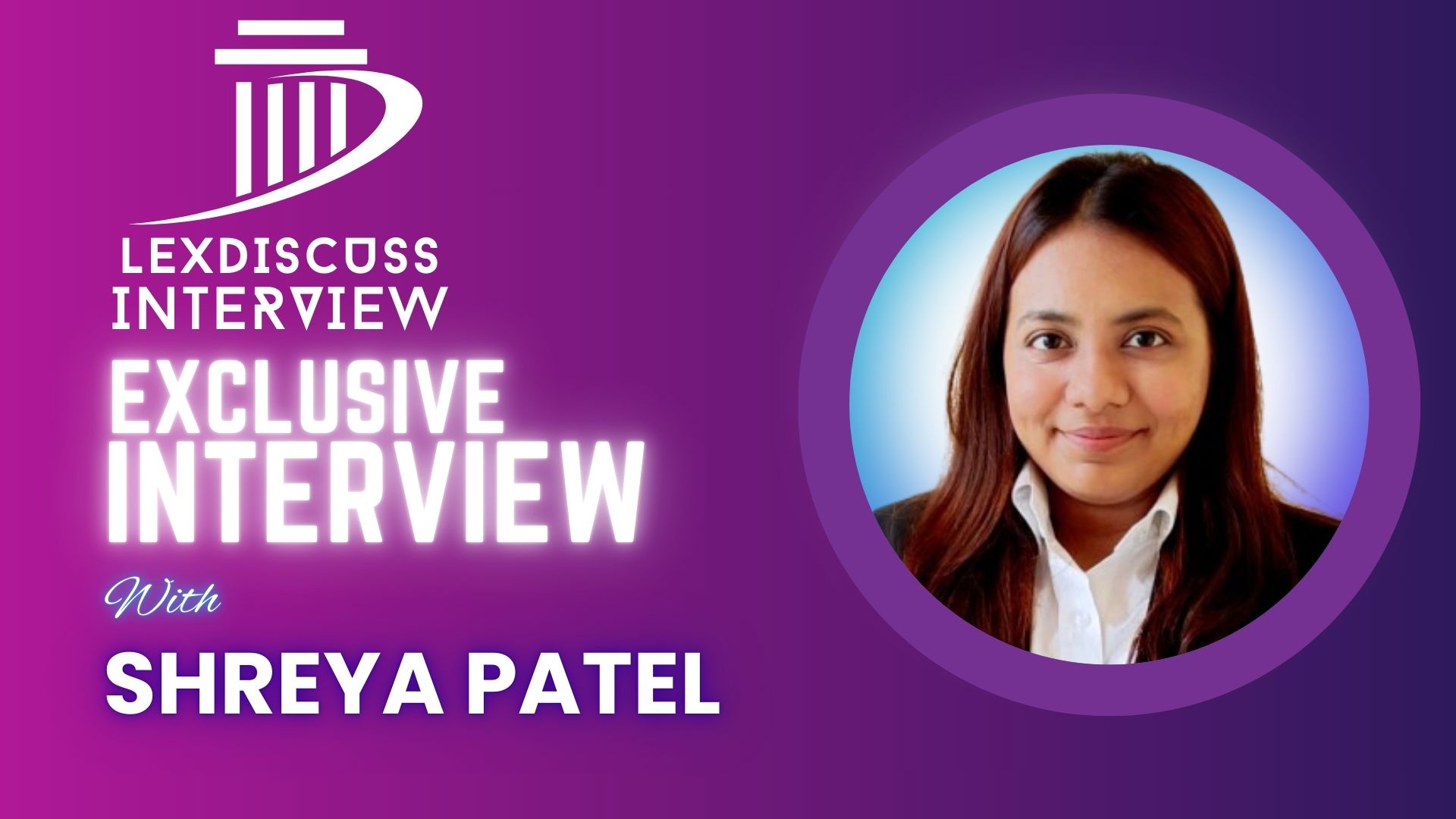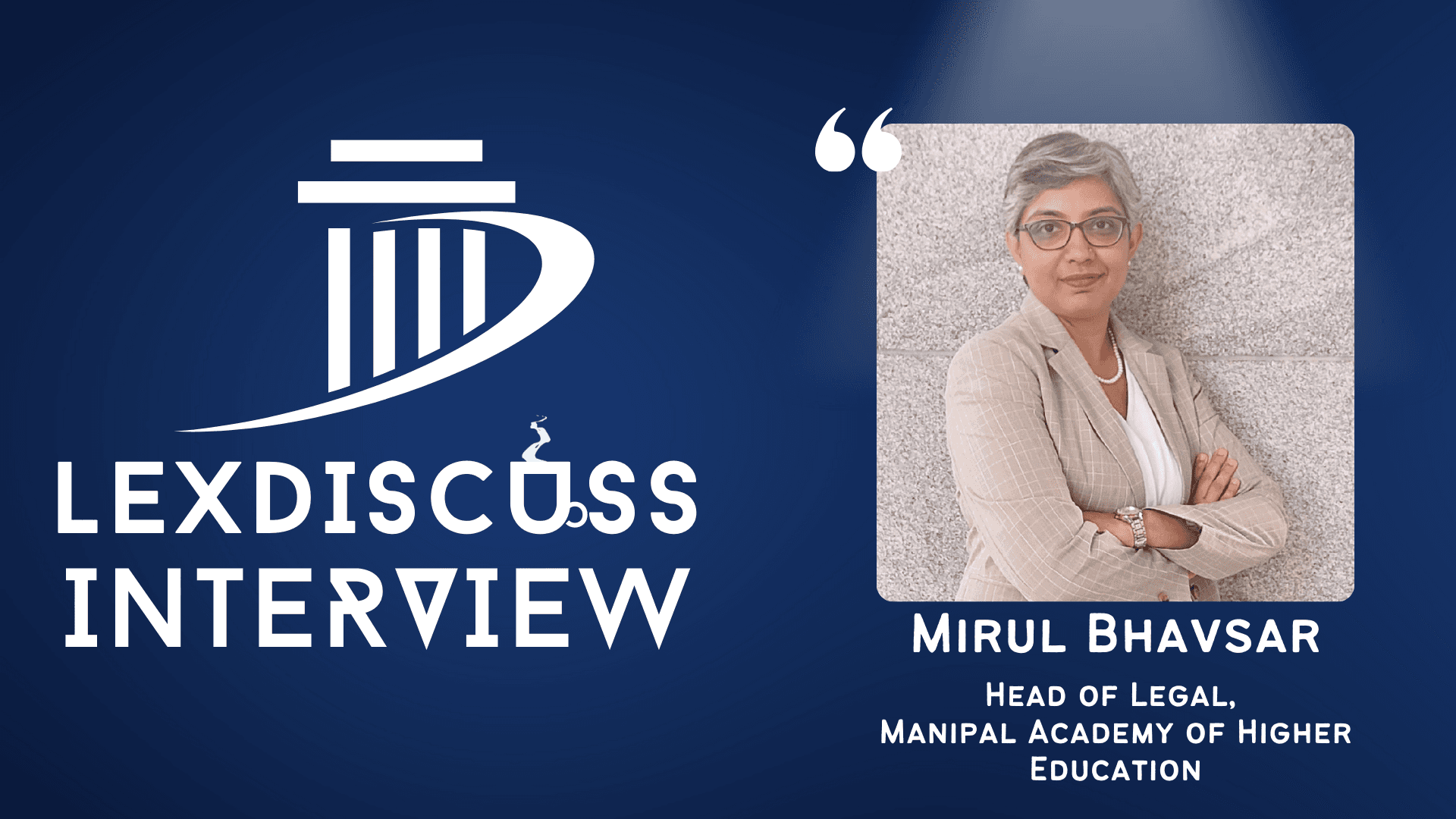Interview with Shreya Patel | From Legal Research to MBA – Exploring Law, AI Integration, and Career Growth
Jun 20, 2024
Legal Careers & AI in Law , Interview
1. Shreya, can you tell us a bit about your journey into the legal profession and what inspired you to pursue this field?
My 12th class teacher and my cousin are the ones that introduced me this field. My cousin wanted to purse this profession, in order to help her; I started researching about the legal field and eventually got interested and inspired to pursue the same
2. You have an impressive academic background with degrees in law, intellectual property, and now pursuing an MBA. How do you balance these varied interests and what drives you to keep learning?
I was always a bookworm, with is the main factor that drives me to keep learning. My interest in MBA came after I started my first corporate job as a legal researcher and content writer for a consultancy company that provided various legal services. It is very rare for legal graduates to purse MBA, which motivated me more. To balance my varied interest I try to integrate the different fields together, I effectively manage my time and keep myself motivated with new challenges and goals.
3. Your work involves extensive legal research and writing. What aspects of legal research do you find most challenging and rewarding?
The most challenging part in legal research is evolving laws and a very vast pool of information present. The most rewarding is to get a opportunity to always learn something new, make people with non legal background understand the laws, and building an expertise.
4. Could you share some insights about your role at Enterslice and the type of legal content you work on?
At Enterslice, I created well-researched legal information, including articles, guides, and on corporate law, intellectual property, taxation, and compliance. My job was to simplify difficult legal topics into engaging writing that appeals to a wide range of readers. I also optimize content for SEO and ensure accuracy and compliance with legal standards
5. What are your thoughts on the potential of generative AI in transforming the legal research process?
By drastically cutting down on the time and effort needed to go through enormous volumes of legal material, generative AI holds the potential to completely transform the field of legal study. It can even swiftly provide summaries, draw attention to pertinent precedents, and pinpoint important legal concepts, all of which contribute to a more complete and effective research process.
6. How do you see AI tools being integrated into daily legal tasks such as drafting documents, conducting research, and managing case files?
By automating repetitive procedures such as drafting standard documents, carrying out preliminary research, and setting up case files, AI tools can simplify everyday legal tasks. These resources save time and improve accuracy.
7. What are some ethical considerations legal professionals should keep in mind when using AI?
Legal professionals should make sure artificial intelligence (AI) techniques are utilized to supplement human judgment rather than to replace it. In order to preserve equity and protect client confidentiality, it is imperative that concerns about bias, confidentiality of data, and transparency in algorithms that use AI are addressed.
8. You've worked on topics ranging from GST to company law and intellectual property. How do you stay updated with such diverse areas of law?
I make it a priority to stay informed and updated in my field by subscribing to a variety of enewspapers and newsletters related to our industry. This helps me stay on top of the latest trends, innovations, and news. Additionally, I actively follow prominent figures and thought leaders on social media. This allows me to gain diverse perspectives and insights, which I often find valuable in my work.
9. Can you discuss a particular project or publication you are especially proud of and why?
One of the most rewarding moments in my writing career was my first blog on the iPleaders blog about the Cyber Appellate Tribunal. This piece received very positive reviews and was ranked among the top five Google search results for that topic, which was a significant achievement for me. I was really proud of my first publication not only because it reached a wide audience but also because it demonstrated my ability to effectively communicate complex legal concepts.
10. How has your proficiency in multiple languages and digital tools like Canva and YouTube Video Creation enhanced your legal career?
Being multilingual enables me to interact with and connect with a larger audience, while online resources such as Canva improve the aesthetic appeal of my legal work. Making YouTube videos aids in simplifying difficult legal issues for viewers to grasp. All of these abilities enhance accessibility, communication, and the overall effect of my legal work.
Rapid Fire Round
1. One word to describe your work style?
Driven
2. Favorite legal drama or movie?
Law and Order Drama Series
3. The most interesting legal case you’ve studied?
Shafin Jahan v. Ashokan K.M. (Hadiya Marriage Case)
4. Coffee or tea?
Coffee
5. Morning person or night owl?
Morning Person
6. One book every legal professional should read?
"Tomorrow’s Lawyers: An Introduction to Your Future" by Richard Susskind
7. A mentor who has significantly impacted your career?
My 12th school teacher that introduced me to legal field.
8. Best advice you’ve ever received?
The best advice I have ever received it to keep a habit of 30 mins for reading on any topic every
day.
9. The next big thing you want to achieve in your career?
Complete my MBA with specialization in international trade and business and start my journey in the field of international business and law.
10. How do you unwind after a long day of work?
Watch criminal and thriller series and jogging for 30 mins.



